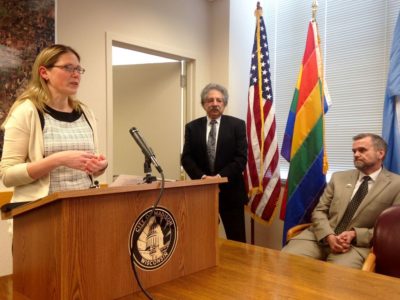New Orleans announced in early January that it was the first major city in the country to meet a goal issued by the Obama administration in 2010: ending veteran homelessness.
But despite dedicated efforts across the country to meet the goal by the end of 2015, and a renewed push last year after Michelle Obama’s announcement of the Mayors Challenge to End Veteran Homelessness, there has been no standard or official definition of what “eliminating veteran homelessness” really means.
For Zero: 2016, a national campaign to end chronic and veteran homelessness by the end of 2016, “zero” means that at any point in time, the number of people experiencing homelessness won’t be greater than the community’s ability to place them in permanent housing.
Beth Sandor, director of Zero: 2016, said her organization recognized early that it needed a clear definition of what it was working toward.
New Orleans was one of more than 70 communities selected for the program, and in its news release about reaching the goal, defined ending veteran homelessness as “ensuring every homeless veteran who can be located is placed in permanent housing or in temporary housing with an identified permanent housing placement” within 30 days.
That doesn’t mean that no veteran will ever again fall into homelessness in New Orleans, said Baylee Crone, executive director of the National Coalition for Homeless Veterans. But now, there is a system in place to find permanent housing for those veterans quickly, she said.
The philosophy of “housing first” requires moving the homeless into permanent housing quickly — and frequently requires lowering barriers to entry to that housing. For example, where people may have previously been required to complete a drug or alcohol treatment plan prior to being placed in permanent housing, now they could be placed in housing and given a case manager for access to the treatment and other services at a later time.
Though the approach is “not perfect by any means,” research has shown it works, Crone said.
The key for communities and outreach teams is to know every person on the streets or in a shelter, Crone and Sandor said.
“If you don’t know their name and needs, you’ll never know what you need to get them into permanent housing,” Sandor said.
And the fact that New Orleans has hit the goal “is a game-changer,” Sandor said.
“It is a proof point,” she said, “an amazing example of what’s possible with good leadership, with the introduction of best practices, of knowing every single person’s name, of not giving up until we get there.”



